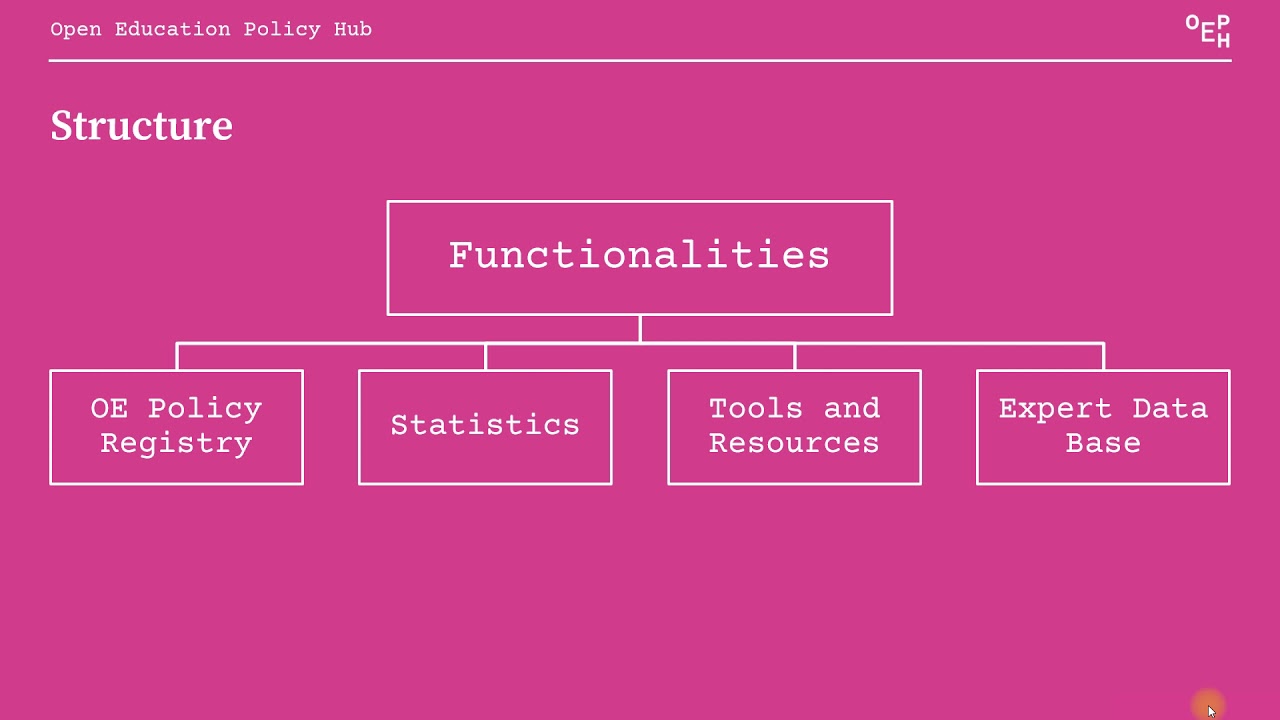Authors: Jan Neumann, Fabio Nascimbeni, Javiera Atenas, Leo Havemann
Institutions: North Rhine-Westphalian Library Service Centre (hbz), Universidad Internacional de la Rioja (UNIR), Open Education Policy Lab, University College London
Countries: Germany, Italy, United Kingdom
Topic: Global Collaboration, Strategies, & Policies in Open Education
Sector: Higher Education
UNESCO Area of Focus: Developing supportive policy
Session Format: Lightning Talk
Abstract
Open Educational Policy Making is one of the most important activity areas covered by the "Recommendation on Open Educational Resources (OER)", which was adopted by UNESCO in November 2019. One of five sections of the recommendation is spent exclusively on policy making and invites member states to "develop or encourage policy environments, including those at the institutional and national levels, that are supportive of effective OER practices".The OE Policy Hub - a new project of the OER World Map - is being developed to support the recommendation in achieving this objective. By the time of writing this proposal the OE Policy Hub is close to being launched (see https://oepolicyhub.netlify.app/). This lightning talk will outline core elements of the project, summarize key lessons learned and sketch planned next steps.
The target audience of the OE Policy Hub are educational policy makers, policy advisors as well as scientists with an interest in policy making. Following the basic approach of the OER World Map, the OE Policy hub aims at aggregating and connecting available information. The core element of the OE Policy Hub is the OE® Policy Registry, a collection of policy documents, which was started by Creative Commons back in 2015.
The OE Policy Registry includes around 200 policy documents from all educational sectors and levels classified by a comprehensive meta data schema. While the registry supports exploring the current policy landscape the hub aims at going one step further by also providing a curated collection of tools and resources as well as a database of experts within the field of OE policy making. Other functionalities, like a collection of good practise examples for the actions listed within the UNESCO recommendation might follow in the future.
While “policy making” has been discussed within the OER/OE community for several years, the concept itself is still ill defined, waiting for deeper explanation by scientists and practitioners. Currently the OE Policy Registry focusses on the collection of policy documents, which arguably are the first tangible outcomes within the policy cycle. One of the challenges of the coming phases of the project will be to extend the data collection process to the activities triggered by the initial policy documents. Another challenge will be to identify mechanisms to evaluate the impact of policies, which is a necessary precondition for benchlearning processes based on good practise examples.
Despite these challenges overall timing of the project seems to be fortunate, since the platform will be available to accompany developments triggered by the UNESCO Recommendation right from its beginning on. As part of the OER World Map the OE Policy Hub will not only promote policy making, but also support other goals of recommendation like cross border cooperation and the monitoring of activity.
Keywords
OE Policy Making, OER World Map, Open Data on Open Education, Benchlearning
